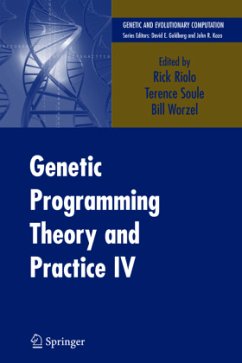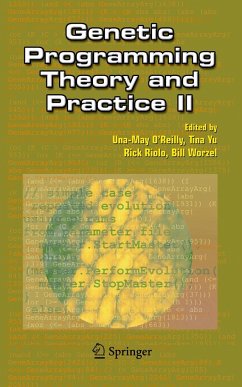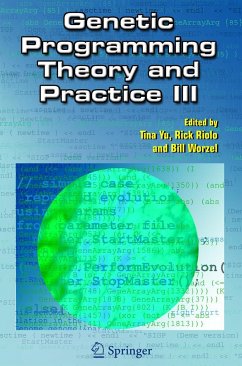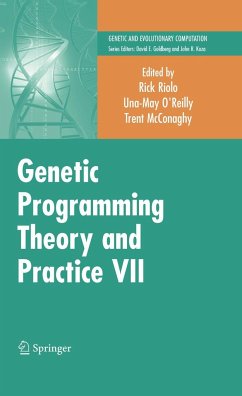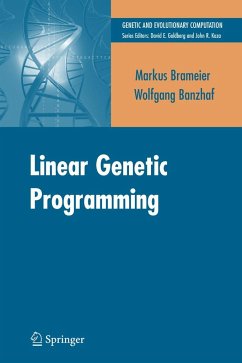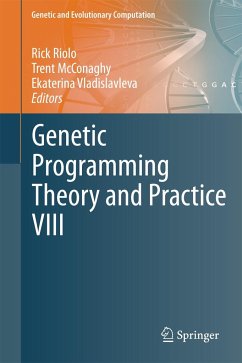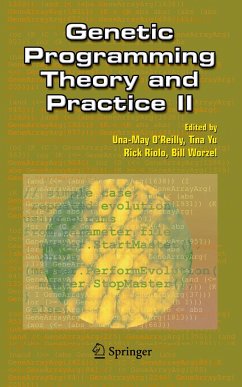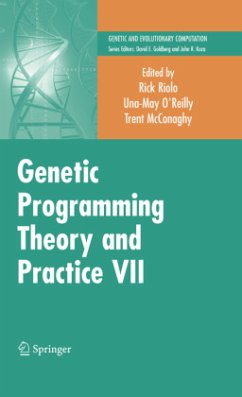Nicht lieferbar
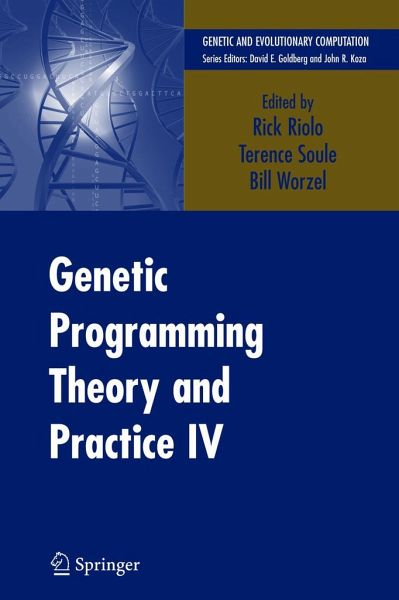
Genetic Programming Theory and Practice IV
Versandkostenfrei!
Nicht lieferbar
Genetic Programming Theory and Practice IV was developed from the fourth workshop at the University of Michigan's Center for the Study of Complex Systems to facilitate the exchange of ideas and information related to the rapidly advancing field of Genetic Programming (GP). Contributions from the foremost international researchers and practitioners in the GP arena examine the similarities and differences between theoretical and empirical results on real-world problems. The text explores the synergy between theory and practice, producing a comprehensive view of the state of the art in GP applica...
Genetic Programming Theory and Practice IV was developed from the fourth workshop at the University of Michigan's Center for the Study of Complex Systems to facilitate the exchange of ideas and information related to the rapidly advancing field of Genetic Programming (GP). Contributions from the foremost international researchers and practitioners in the GP arena examine the similarities and differences between theoretical and empirical results on real-world problems. The text explores the synergy between theory and practice, producing a comprehensive view of the state of the art in GP application.
This volume represents a watershed moment in the GP field in that GP has begun to move from hand-crafted software used primarily in academic research, to an engineering methodology applied to commercial applications. It is a unique and indispensable tool for academics, researchers and industry professionals involved in GP, evolutionary computation, machine learning and artificial intelligence.
This volume represents a watershed moment in the GP field in that GP has begun to move from hand-crafted software used primarily in academic research, to an engineering methodology applied to commercial applications. It is a unique and indispensable tool for academics, researchers and industry professionals involved in GP, evolutionary computation, machine learning and artificial intelligence.




